Selecting a Fastener Insertion System
Process Competence - The best technical solution for every application
TOX® PRESSOTECHNIK provides you with the best technological solutions and complete turnkey systems from one source. In addition to the most widely used processes for the installation of fasteners and functional elements, our competent staff also develops individual custom solutions. This is made possible through our experience, existing ideas and designs and our wide range of standard components.
Although there are many fasteners and functional element types, there are 4 basic processes:
Through our long-standing cooperation with fastener suppliers and manufacturers, TOX® PRESSOTECHNIK is a complete partner in supplying the perfect system solution. Our expertise provides you with a one-stop source for processing your elements.
TOX® PRESSOTECHNIK provides expertise in pressing elements into a given part. In addition to standard versions, we can also manufacture custom presses to suit your application. The best process and application for fastener insertion is defined by the element itself and its design.
Not sure how to proceed? – The element defines the process!
Process category: Process without pre-punching
Process description: The element meets an unpunched component and is pressed in with high pressure. The element deforms to create a solid clinch connection.
Fasteners/Functional elements: Self-clinching rivets, self-clinching nuts, self-clinching studs
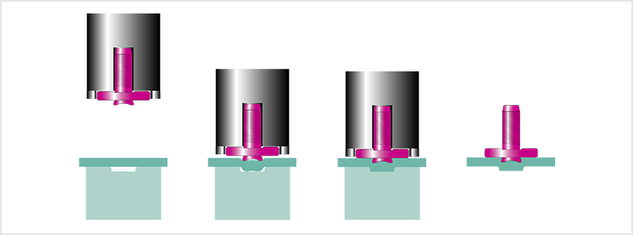
Characteristic of the clinch element insertion process:
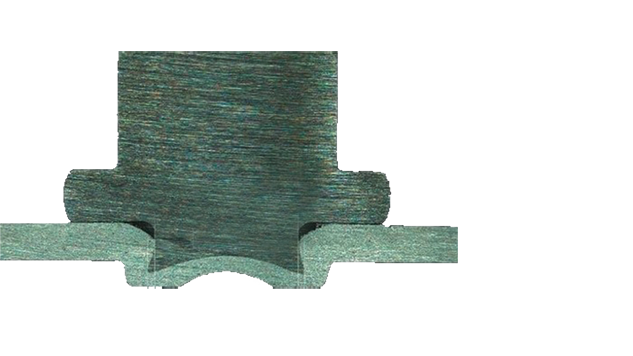
The characteristic of the clinching process is the creation of the firm seating of the element in the component without cutting through the component itself. This process is particularly suitable for studs and screws which are pressed into components which have specific requirements for leakproof connections.
The seating of the functional element in the component is produced by a deformation and the generation of the undercut between element and component.
Process category: Process without pre-punching
Process description: The functional elements punch through the unpunched components. A solid connection that is resistant to twisting and pressing out is created by the flow of material into the element.
Fasteners/Functional elements: Pierce studs, pierce nuts, self-piercing nuts
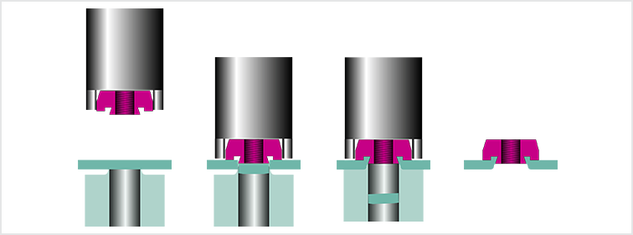
Characteristic of the punch element insertion process:
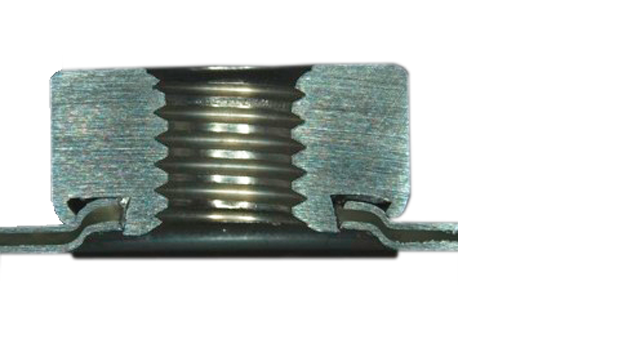
During piercing process the functional elements are pressed into an unpunched piece part or component. A firm seating secured against rotation and press out is created by the lateral flow of punch side material.
Process category: Process with pre-punching
Process description: The functional element is pressed into a pre-punched and formed component. The material flows behind the element and ensures a force-locked connection.
Fasteners/Functional elements: Press-in studs, press-in nuts, clinch studs, clinch elements
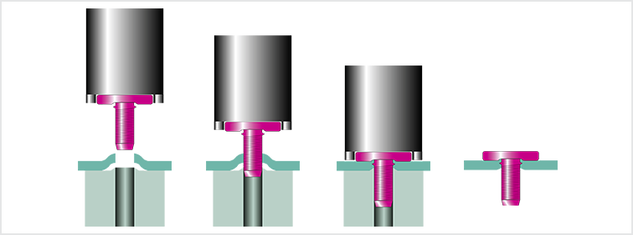
Characteristic of the press fitting element insertion process:

This process is characterized by deforming the component into undercuts in the functional element. Here, there are two different kinds of function elements: elements which are pressed into pre-punched components and elements which are pressed into piece parts without pre-punching.
The functional elements are differentiated between self-piercing and non-piercing.
Process category: Process with pre-punching
Process description: The element is inserted into a prepunched component. It gets deformed and a solid connection is created.
Fasteners/Functional elements: Rivet studs, rivet nuts, riveting fasteners
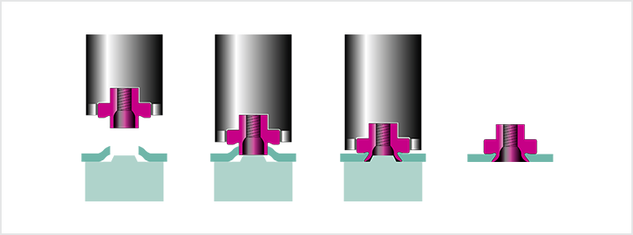
Characteristic of the rivet element insertion process:
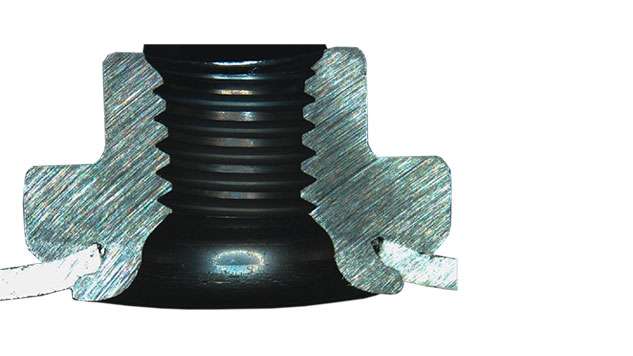
During riveting process, the component and/or the functional element is deformed and thus a firm seat in the component is created. This process is particularly suitable for fuctional elements which are pressed into a pre-punched component or which are self-piercing elements.
You define the element - we deliver the complete equipment!

|
Contact
GB: +44 1785 904667
Contact form
|
|
Cookie Information
We use cookies to give you the best possible experience when using our website. You can block or regulate the use of cookies by adjusting your browser settings accordingly. |